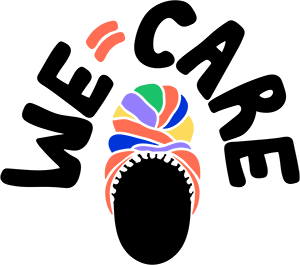About Us
Across the globe, unpaid care and domestic work (UCDW) sustains communities and economies, provides essential care for children, sick and elderly people and those living with disabilities, and keeps households clean and families fed. Without unpaid care, the global economy as we know it would grind to a halt. Yet this work falls disproportionately on women and girls, limiting their opportunities to participate in decent paid employment, education, leisure and political life. Heavy and unequal UCDW traps women and girls in cycles of poverty and stops them from being part of solutions.
Making care more valued and visible
In low-income settings, where essential public services are inadequate and tasks such as collecting
water and firewood are particularly heavy and time-consuming, women do up to six times as much UCDW as men. When domestic tasks require inordinately long hours, time for direct care of people is further constrained.
Local groups, women’s rights organizations and activists have long pushed for recognition for UCDW as a public policy issue and have built momentum to address heavy and unequal unpaid care work as critical to progress on gender equality, poverty reduction and development. These movements have forced governments, donors and companies to begin to change their policies, invest to meet women’s and girls’ needs and priorities, and achieve sustainable and inclusive development goals. However, far more still needs to be done to achieve gender equality.
By recognizing, reducing, and redistributing UCDW, WE-Care is promoting a just and inclusive society where women and girls have more choice at every stage of their lives, more opportunities to take part in economic, social and political activities, and where carers’ voices are heard in decision making about policies and budgets at all levels—supporting women and girls to reach their full potential.
From ‘radical’ to mainstream: The changing narrative of care
Conversations on UCDW have evolved over the decades from the ‘domestic labour debate’ of the 1970s— then considered radical—to addressing care increasingly being seen today as a precondition for women’s political, economic and social empowerment.
The decades in between saw ongoing resistance to addressing care, with detractors arguing that unpaid care is a minor issue, only a concern for Northern women, too ‘personal’, ‘cultural’ or ‘divisive’, and that norms change takes too long to be addressed in development programs.
Meanwhile, a range of ground-breaking initiatives paved the way for greater commitment, leadership and programming on care. These included the 1981 International Labour Organization (ILO) Convention No. 156, which recognized workers’ family responsibilities; the 1995 Beijing Platform for Action, which made women’s care work visible using data and evidence; Shahra Razavi’s ‘Care Diamond’4 and Diane Elson’s ‘Recognize-Reduce-Redistribute’ framework5 in 2007 and 2008, respectively; the 2013 Report of the Special Rapporteur on extreme poverty and human rights, which recognized heavy and unequal UCDW as a violation of human rights; the ILO Resolution I in 2013, which mandated that full-time unpaid carers be recognized as part of the workforce; and the inclusion of UCDW in the Sustainable Development Goals in 2016.
Behind the impetus to address UCDW as a key factor in efforts to achieve gender equality and economic development is the long-overdue need to correct a system that entrenches sexism and race and class discrimination by undervaluing care work, with the heaviest workloads done by women in poverty, marginalized racial and ethnic groups and migrants.
Addressing UCDW means ensuring a safer, more equal future for women and girls, regardless of where they come from or what their economic status is.
